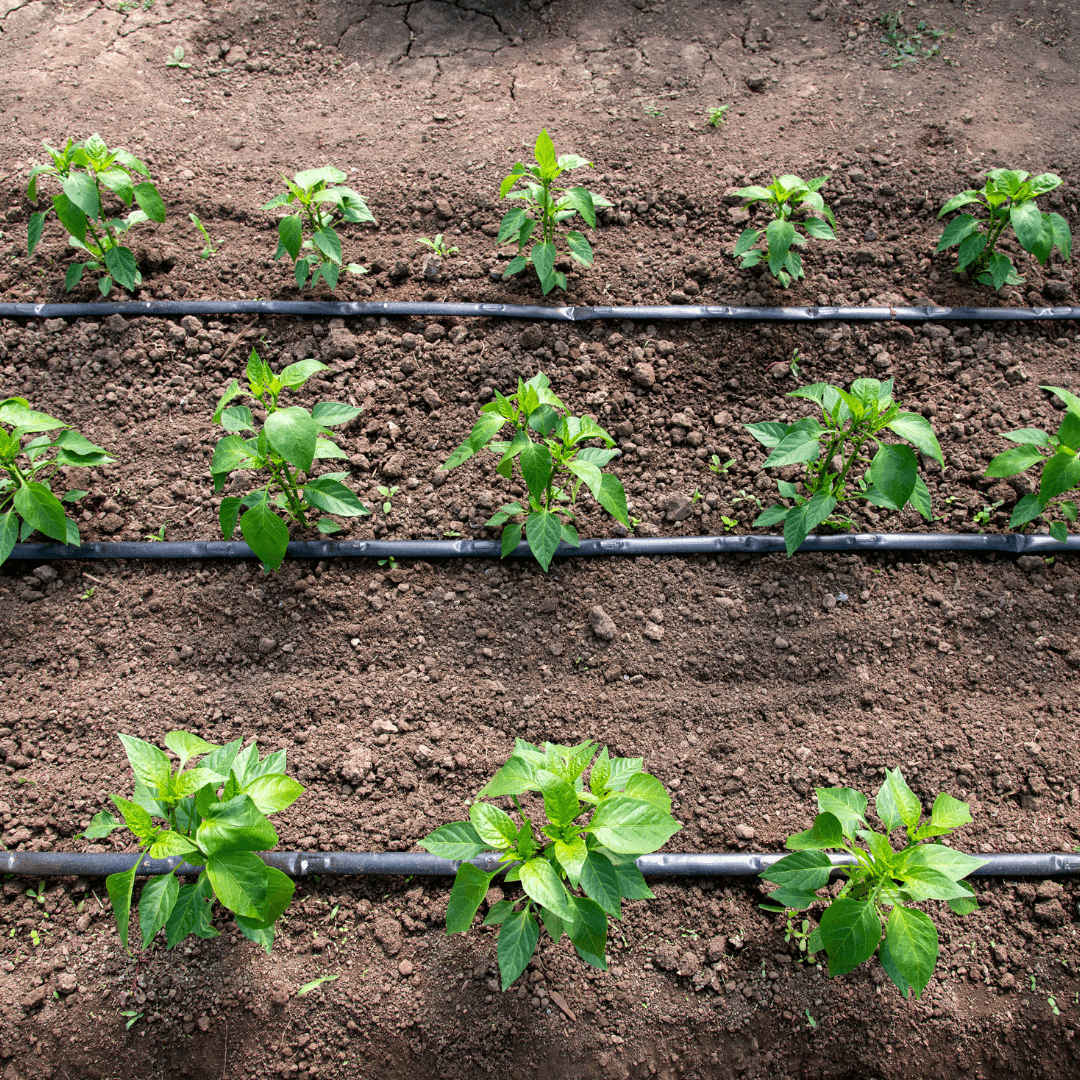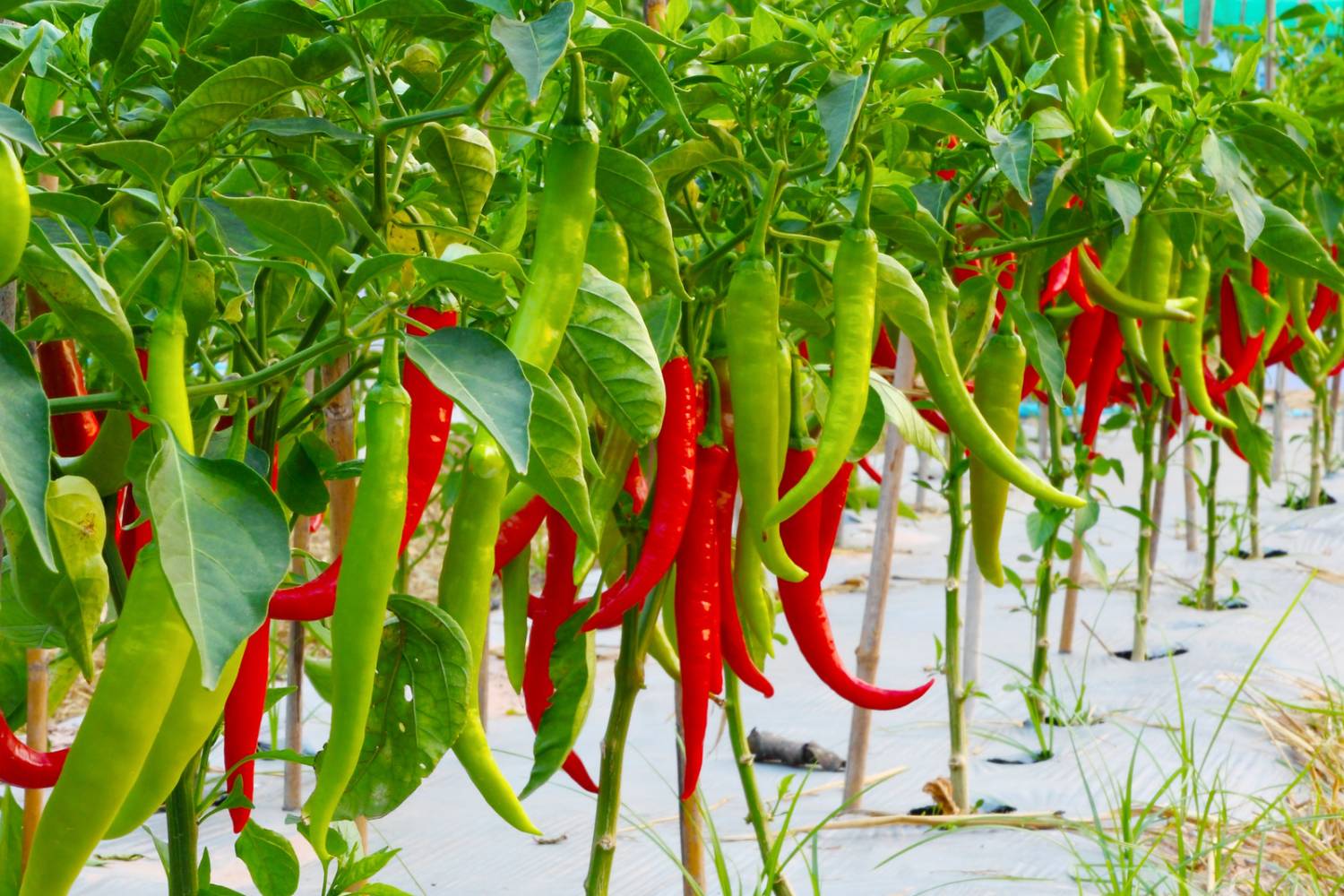Top-Rated Fertilizers for Peppers: Improve Your Harvest Quality
Top-Rated Fertilizers for Peppers: Improve Your Harvest Quality
Blog Article
Exactly How Fertilizers Play a Critical Role in Growing Bountiful and healthy Pepper Crops
Plant foods serve as the foundation of effective pepper farming, supplying a strategic approach to nourishing the dirt and cultivating ideal plant growth. The elaborate dancing between vital nutrients and the pepper plants' physiological processes highlights the pivotal role that plant foods play in making sure a plentiful harvest.
Relevance of Nutrient-Rich Plant Foods
The use of nutrient-rich plant foods plays a pivotal duty in enhancing the performance and quality of pepper plants in modern-day agricultural techniques. Pepper plants call for a well balanced mix of vital nutrients to thrive and create high returns of high quality fruits. Potassium, phosphorus, and nitrogen are main nutrients that are vital for the growth and development of pepper plants. Nitrogen help in leafed eco-friendly growth and overall plant vitality, phosphorus sustains root advancement and flower production, while potassium adds to illness resistance and fruit top quality.
Inadequate levels of these nutrients can lead to stunted development, reduced returns, and vulnerability to illness (best fertilizers for peppers). Nutrient-rich plant foods supply a targeted service to ensure that pepper plants get the necessary aspects for optimal development and productivity. In addition, these plant foods assist boost dirt fertility over time, developing a lasting environment for long-lasting pepper growing
Enhancing Plant Growth and Advancement
To enhance plant growth and growth in pepper crops, calculated application of nutrient-rich plant foods is necessary. Plant foods play an essential duty in enhancing the total wellness and efficiency of pepper plants by giving them with vital nutrients that may be lacking in the dirt.
In addition to these macronutrients, trace elements such as iron, magnesium, and zinc are likewise important for the appropriate functioning of different plant procedures. Iron, for example, is needed for chlorophyll manufacturing, which is vital for photosynthesis and overall plant development. Zinc plays a crucial role in enzyme task and hormone synthesis, impacting plant development and advancement at a cellular degree. Magnesium is vital for the development of chlorophyll and overall energy transfer within the plant.

Boosting Disease Resistance With Fertilizers
By purposefully integrating targeted plant foods, farmers can strengthen the condition resistance of pepper crops, making sure optimal plant wellness and productivity. Plant foods consisting of vital nutrients like nitrogen, potassium, and phosphorus play a crucial role in enhancing pepper plants' body immune systems, making them extra durable to various illness. Nitrogen, as an example, aids in the manufacturing of healthy proteins that are important for plant defense reaction. Phosphorus contributes to root advancement, making it possible for plants to much better absorb nutrients and water, thus improving their capability to fend off conditions. Potassium regulates procedures that improve overall plant health, making peppers more durable versus microorganisms.

Taking Full Advantage Of Pepper Yield Through Fertilizing
Using a well balanced fertilization approach is vital to accomplishing maximum pepper return and guaranteeing optimal plant efficiency. By providing peppers with the ideal nutrients at the ideal time, farmers can great post to read substantially enhance their return capacity. Nitrogen, phosphorus, and potassium are essential aspects for pepper growth, with nitrogen helping in leaf and stem growth, phosphorus supporting origin development and flower development, and potassium promoting general plant health.
To make the most of pepper yield, it is vital to conduct dirt examinations to identify existing vitamins and mineral levels and identify any shortages that require to be addressed. Based on these results, farmers can create a customized fertilization plan that satisfies the particular demands of their pepper crops. Furthermore, appropriate fertilizing techniques such as split applications throughout the growing period can make certain continuous nutrient accessibility for the plants.

Sustainable Plant Food Practices for Peppers
In considering sustainable fertilizer methods for peppers, it is crucial to concentrate on long-lasting dirt health and ecological stewardship combined with making best use of plant performance. Sustainable fertilizer techniques intend to improve or maintain soil fertility while minimizing unfavorable environmental effects. One vital strategy is using natural plant foods such as garden compost, manure, or cover plants, which not only offer necessary nutrients to the peppers yet additionally add to dirt framework and microbial task. These organic choices help build raw material in the dirt, improving its capability to maintain water and nutrients, thus supporting long-term plant wellness and strength.
In click here now addition, precision agriculture strategies, such as dirt testing and targeted nutrient applications, can assist optimize plant food usage, ensuring that peppers get the nutrients they need without excess drainage into waterways. This not just benefits the atmosphere by decreasing pollution yet likewise saves expenses for farmers by reducing waste. By taking on sustainable plant food practices, pepper cultivators can safeguard the wellness of their crops, dirt, and surrounding communities for future generations.
Verdict
Finally, plant foods are vital for growing abundant and healthy and balanced pepper crops. best fertilizers for peppers. They give required nutrients for plant development and development, increase condition resistance, and make the most of return. By implementing lasting fertilizer methods, farmers can ensure the long-lasting wellness of their pepper plants and contribute to a much more reliable and environmentally-friendly farming system
The elaborate dancing between crucial nutrients and the original source the pepper plants' physiological procedures emphasizes the critical function that plant foods play in guaranteeing a plentiful harvest.To maximize plant growth and growth in pepper crops, calculated application of nutrient-rich plant foods is important. Plant foods play an important role in improving the general health and wellness and efficiency of pepper plants by giving them with essential nutrients that may be lacking in the soil.By strategically incorporating targeted fertilizers, farmers can bolster the disease resistance of pepper crops, ensuring ideal plant wellness and performance. Plant foods having crucial nutrients like nitrogen, phosphorus, and potassium play a crucial role in strengthening pepper plants' immune systems, making them more resistant to various diseases.
Report this page